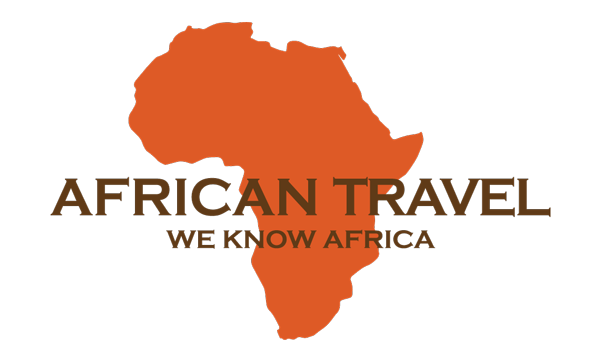SAFARI BLOG
What to do in Kenya?
Top 10 Kenya Safari Experiences You Can't Miss
Kenya is a land of breathtaking landscapes, rich cultures, and extraordinary wildlife. From the sprawling savannahs of the Maasai Mara to the pristine beaches of the Indian Ocean, Kenya offers an array of experiences that will leave a lasting impression. Here are the top 10 Kenya experiences that should be on every traveler’s bucket list.
1. Witness at the Great Migration
The Great Migration is one of the world’s most awe-inspiring natural events, when over 1.5 million wildebeest, along with zebras and gazelles, journey through the Serengeti and into the Maasai Mara in search of fresh grazing. The migration reaches the Mara from July to October, with dramatic river crossings at the Mara River as crocodiles and predators wait for their chance. Watching this powerful display of survival and instinct is one of Kenya's most sought-after safari experiences. Our World’s Greatest Show and Safari offers an incredible opportunity to witness this spectacular event alongside other highlights of Kenya and Tanzania.
2. Experience Year-Round Wildlife Viewing in the Maasai Mara
The Maasai Mara offers some of the best year-round wildlife viewing in Africa. It is home to the highest concentration of lions in Africa and one of the richest predator populations. Lions, leopards, and cheetahs are consistently spotted hunting plains game like zebras, gazelles, and topi. Elephants and buffalo are common sightings, and the Mara is home to over 450 bird species. The contrast between the dry and green seasons creates different viewing experiences, making it a destination that rewards repeat visits.
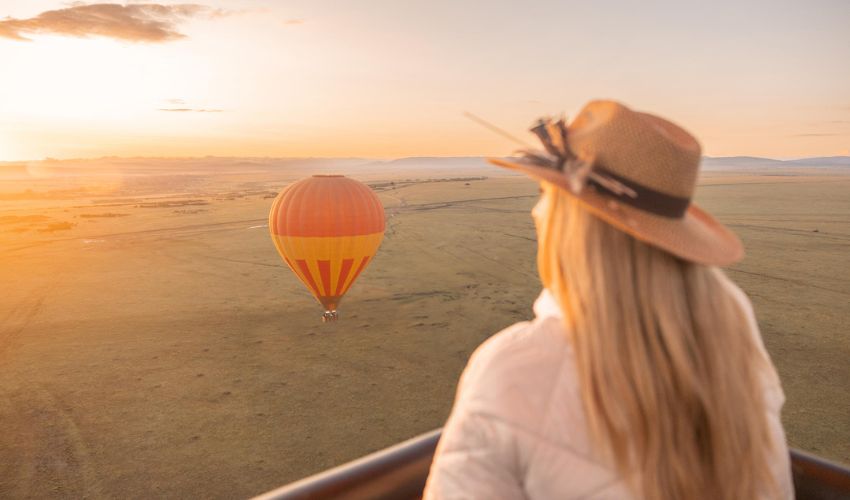
3. Soar Above the Mara on a Hot Air Balloon Safari
A hot air balloon safari over the Maasai Mara at sunrise offers a breathtaking view of the vast plains and abundant wildlife. Glide silently over herds of elephants, giraffes, and antelopes, and finish the experience with a champagne breakfast in the bush — an unforgettable perspective of Kenya's wilderness.
4. Spot the Samburu Five
Northern Kenya’s Samburu region is a dramatic, untamed landscape home to the elusive Samburu Five—Grevy’s zebra, reticulated giraffe, Somali ostrich, Beisa oryx, and the gerenuk, a long-necked gazelle known for its ability to stand on its hind legs to browse from trees. Samburu and Shaba National Reserves are prime locations to spot these rare species, while the exclusive Namunyak Conservancy offers an even more secluded safari experience. Here, visitors can encounter not only the Samburu Five but also leopards, African wild dogs, lions, impalas, greater kudus, and an array of birdlife—all in a pristine, community-supported conservation area.
Our Captivating Kenya itinerary pairs a luxury Maasai Mara safari at Mahali Mzuri Camp, Sir Richard Branson's renowned property, with an intimate stay at Sarara Treehouses in Namunyak, offering an exclusive experience in Kenya’s most iconic destinations.
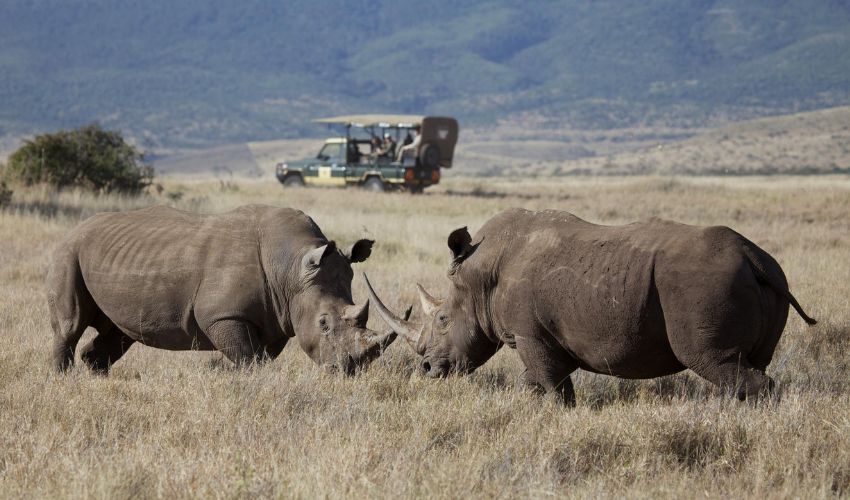
5. Explore Laikipia's Wildlife Conservancies
Laikipia is a hidden gem in central Kenya, offering a more intimate, private safari experience. The region is home to several luxury lodges and exclusive wildlife conservancies, including Lewa Wildlife Conservancy and Loisaba Conservancy, where you can enjoy game drives, horseback riding, and walking safaris. Laikipia is also at the forefront of rhino conservation, with both black and white rhinos thriving in these protected areas. The stunning landscapes of Laikipia, with its wide-open plains and dramatic scenery, provide a breathtaking backdrop for wildlife encounters. Visitors have the opportunity to witness conservation efforts up close, meet with rangers, and learn about the incredible tracker dogs assisting in protecting endangered species.
6. Discover Amboseli National Park’s Giants
Amboseli National Park is famous for its expansive views of Mount Kilimanjaro, Africa's highest peak. The park is home to large herds of elephants and offers incredible opportunities for wildlife photography. Visit during the dry season for the best views of Kilimanjaro, framed by golden plains and dotted with wildlife.
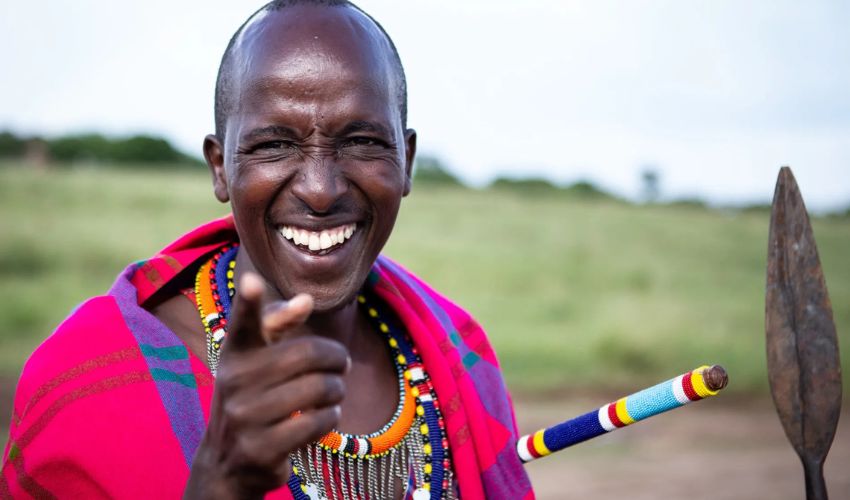
7. Marvel at the Flamingos at Lake Nakuru
Lake Nakuru, located in the Great Rift Valley, is renowned for its vibrant population of flamingos that create a pink hue along the lake’s shore. The surrounding national park is also a sanctuary for rhinos and other wildlife, making it an excellent spot for birdwatching and game drives.
8. Connect with the Maasai People
To truly understand Kenya's heart, immerse yourself in Maasai culture. Spend time with a Maasai tribe in their traditional villages, learning about their customs, ceremonies, and lifestyle. Engage in activities like dancing, beadwork, and the famous Maasai jumping dance. This experience offers a rare, authentic glimpse into one of Africa's most fascinating cultures.
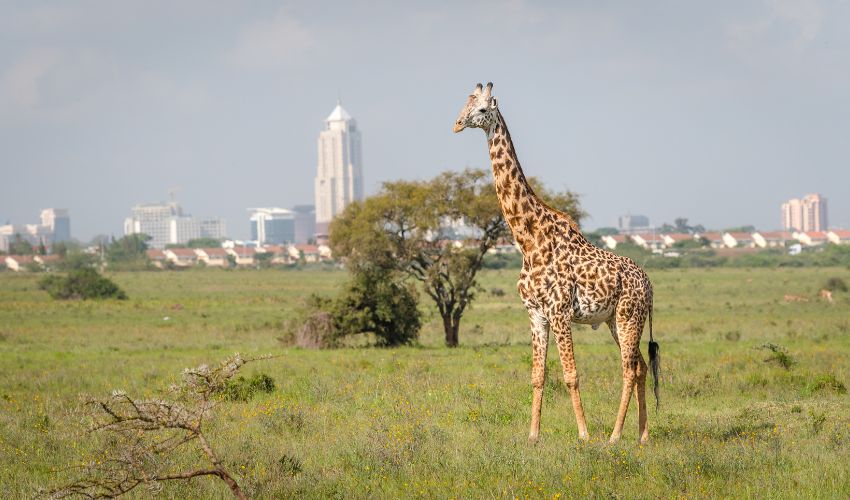
9. Explore Nairobi's Wildlife and Culture
Kenya’s vibrant capital, Nairobi, blends modernity with rich history. Visit the Nairobi National Park, the only wildlife park located within a city, where you can spot rhinos, lions, and giraffes against the backdrop of the city skyline. Explore the Karen Blixen Museum, the former home of the "Out of Africa" author, to gain insight into Kenya’s colonial past and literary history. The David Sheldrick Wildlife Trust, which rescues and rehabilitates orphaned elephants, is another must-see for animal lovers.
10. Relax at Diani Beach
For a coastal retreat, Diani Beach is one of Kenya's finest. With its powdery white sand, clear turquoise waters, and luxurious beachfront resorts, Diani is perfect for those looking to unwind after a safari. Snorkeling, diving, and water sports are all on offer, along with a laid-back vibe that's perfect for relaxation.
Kenya is a destination brimming with unforgettable experiences, from its incredible wildlife to its dramatic landscapes. With so much to see and do, it can be difficult to fit everything into one trip. However, no matter when you visit, Kenya offers year-round wildlife viewing and the timeless charm of its "Out of Africa" atmosphere. The Maasai Mara is the highlight of any itinerary, offering world-class safari experiences and abundant wildlife. For a more exclusive and intimate adventure, the luxury lodges and camps of Laikipia and Samburu will complete your journey, immersing you in the wild beauty of the region. Whether it's your first time to Africa or you're a seasoned traveler, Kenya never disappoints. Browse our Kenya safari itineraries for inspiration and start planning your adventure of a lifetime.
True or False About African Safaris
Top 10 Myths About African Safaris
A safari in Africa is a dream for many travelers, yet misconceptions often prevent people from experiencing its true magic. From concerns about safety and level of luxury to incorrect ideas about wildlife, weather, timing, and the safari experience itself. Let’s debunk the top 10 myths about African safaris and reveal the reality behind this extraordinary adventure.
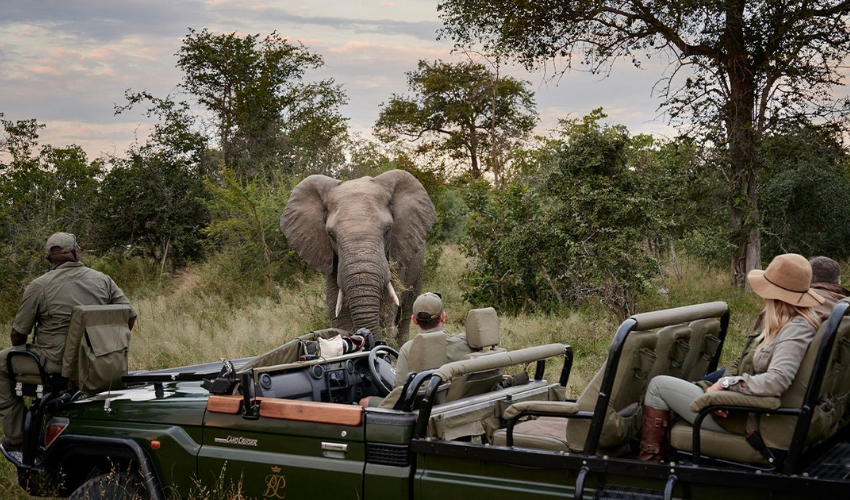
Myth 1: The Only Thing to See in Africa is Wildlife
Reality: While Africa is famous for its extraordinary wildlife, it offers so much more. From the colorful streets of Cape Town’s Bo-Kaap to the ancient wonders of Luxor and Abu Simbel in Egypt, the continent is rich in history, culture, and breathtaking landscapes. Experience the vibrant city life of Nairobi or Kigali, sip world-class wines in South Africa’s Winelands, or unwind on the white-sand beaches of Zanzibar and the Seychelles.
Even on safari, wildlife viewing is just one part of the experience. Luxury lodges and camps offer a variety of activities, from guided bush walks and hot air balloon rides to photography workshops, cooking classes, and spa treatments. Enjoy a scenic picnic, toast the sunset with a sundowner, or dine under the stars in a lantern-lit bush setting. And when night falls, Africa’s remote landscapes provide some of the world’s best stargazing.
Myth 2: You Need Weeks to Visit Africa or You Just Need a Couple of Days
Reality: The truth is somewhere in between. While you don’t need weeks to experience Africa, you also need more than just a couple of days on safari to truly appreciate it. We recommend at least a week, which allows you to visit two safari locations and spend around three nights at each. This gives you ample time to enjoy the different landscapes, wildlife, and experiences each destination has to offer.
A 10-12 day itinerary is a great option—it offers a well-rounded experience, letting you explore a variety of terrains and see diverse wildlife without feeling rushed. Browse our popular safari itineraries for inspiration.
Myth 3: Safari Accommodations Are Basic or Too Adventurous
Reality: The days of roughing it in the bush are long gone. Africa boasts some of the most luxurious accommodations in the world, from elegant lodges with infinity pools overlooking the savanna to exclusive-use villas with private chefs and guides. Stay in the stunning Xigera Baobab Treehouse in the Okavango Delta, enjoy art and fine dining at Ellerman House in Cape Town, or take over a private villa in Sabi Sabi. Safari today is as much about comfort as it is about adventure.
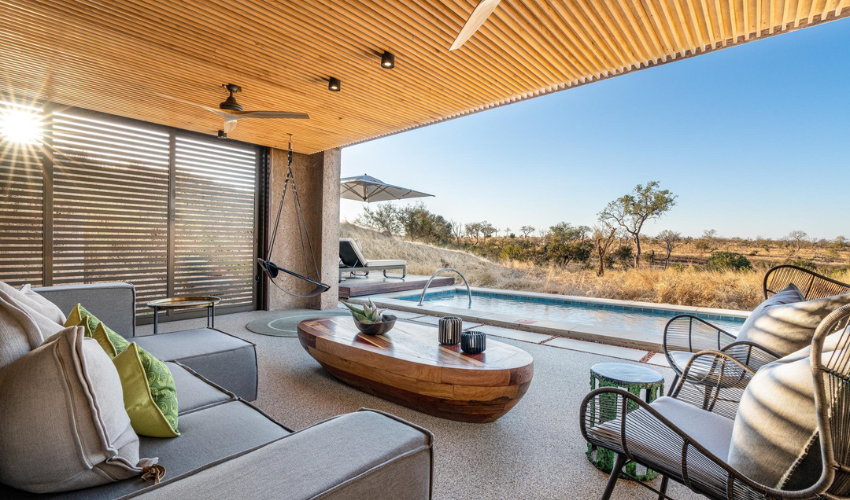
Myth 4: Safaris Are Only for the Wealthy
Reality: While luxury safaris offer unparalleled exclusivity, there are options for various budgets. Green Season safaris provide incredible value, with lush landscapes, baby animals, and fewer crowds. Many lodges also offer special deals, such as free nights, kids stay free, or waive single supplements for solo travelers. Working with an expert safari planner will help you get the best experience within your budget.
Myth 5: You Have to Travel During Peak Season to See Wildlife
Reality: Africa is a year-round destination, and each season offers its own unique charm and experiences. One common misconception is that the Great Migration is only visible during the dry season (June–October), but this awe-inspiring event can be witnessed year-round. From January to February, the migration is in the southern Serengeti during calving season, providing the perfect opportunity to see adorable baby animals and dramatic predator-prey interactions. Our World’s Greatest Show and Safari is designed to capture the best of the Great Migration, with locations and camps adjusted to your travel dates.
Visiting Victoria Falls from October to January offers lower water levels, allowing you to see the falls from different angles and experience the famous rock formations that are usually hidden in the mist. This period also offers the chance to take part in thrilling activities like taking a dip in Devil’s Pool - a natural rock pool at the edge of the falls—an unforgettable experience.
Myth 6: Africa is a Single Destination
Reality: Africa is an incredibly diverse continent, made up of 54 countries, each offering its own unique landscapes, cultures, and experiences. From the iconic gorilla trekking in Rwanda’s Volcanoes National Park to the surreal beauty of Namibia’s towering dunes in Sossusvlei, Africa is a continent of endless variety. Whether you’re seeking wildlife, history, adventure, or culture, there’s a destination within Africa to suit every traveler’s interests. Each region offers its own flavor of Africa, from the Mediterranean coast of North Africa to the savannahs of East Africa and vast deserts of Southern Africa.
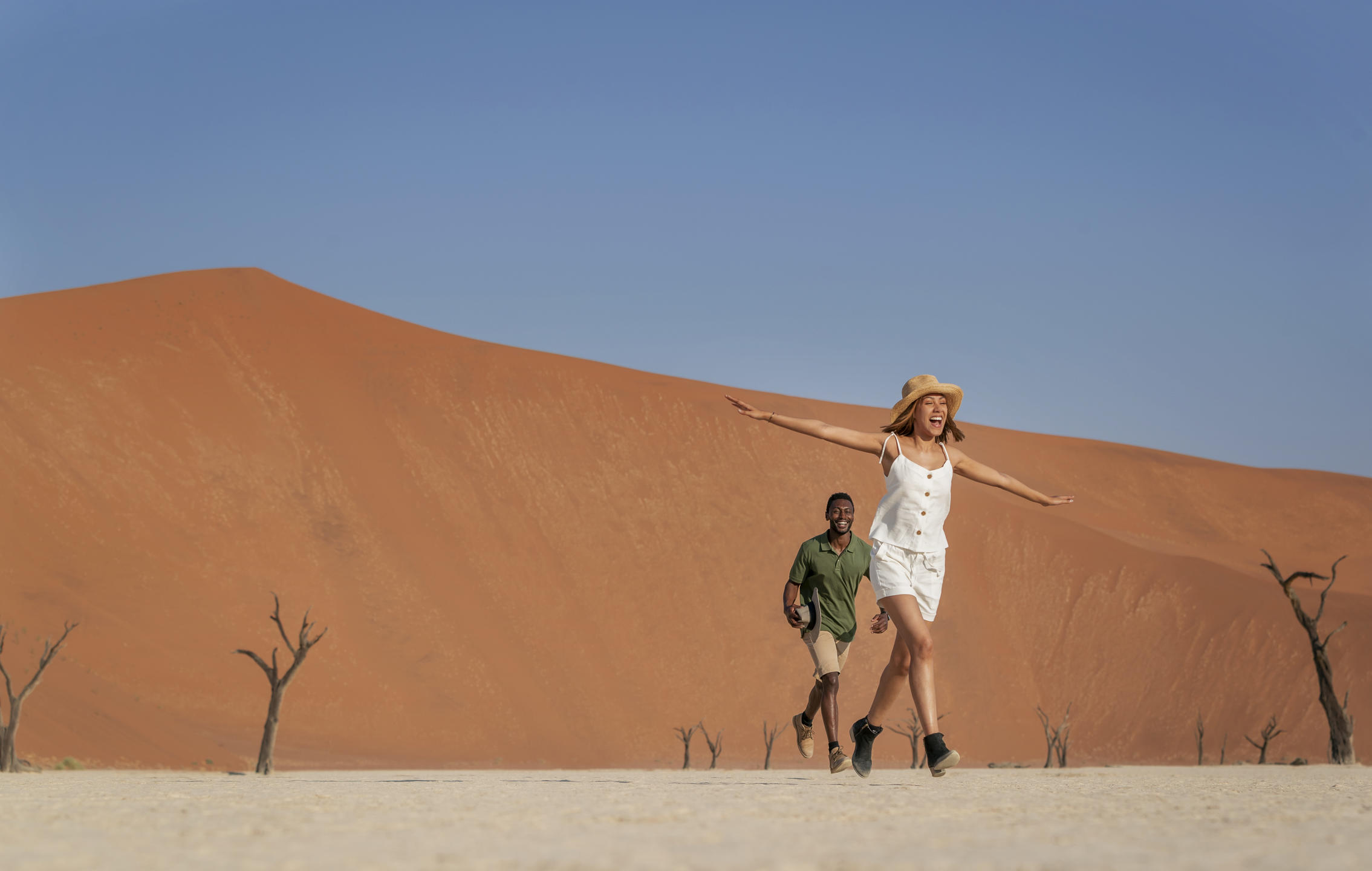
Myth 7: Safaris Are Dangerous
Reality: While it’s understandable to have concerns, safaris are actually very safe, especially when guided by experts. Animals in the wild don’t see humans in safari vehicles as a threat. Most animals, like elephants, lions, and giraffes, are accustomed to the presence of safari vehicles and don’t perceive them as predators. Safari guides are trained in animal behavior and know how to approach wildlife, ensuring you stay at a safe distance.
The vehicles are designed to keep you secure, and animals typically ignore the vehicles as they move through their territory. It’s important to remember that while animals can be unpredictable in the wild, they are not generally inclined to attack unless provoked. With a professional guide leading the way and strict protocols in place, safaris provide a safe and exciting way to observe wildlife without putting yourself at risk.
Myth 8: The Weather is Always Hot
Reality: Africa’s climate is far more varied than most people realize. While some regions are known for their year-round warmth, many others experience much cooler temperatures. For example, South Africa’s winter months (June–August) bring crisp, chilly mornings and evenings, especially in the higher altitudes of areas like Cape Town and the Drakensberg mountains. In East Africa, the highland areas of Nairobi and Arusha have mild, temperate weather year-round, making them ideal for outdoor activities. The Sahara Desert, on the other hand, experiences extreme heat during the day but can be very cool or even cold at night. By packing accordingly for varying climates—light clothing for the day and layers for the evenings—you’ll be able to stay comfortable throughout your African adventure. Understanding the weather patterns of your destination is key to making the most of your trip.
Myth 9: Safaris are All Day Game Drives
Reality: A typical safari day doesn’t mean being in a vehicle all day long. Game drives are usually scheduled for early morning and late afternoon, when animals are most active. Unless you’re traveling between destinations, especially in East Africa, you’ll have plenty of downtime in between to relax and enjoy the lodge.
During the day, you can take it easy—curl up with a good book, take a dip in the pool, or simply enjoy the peace of your suite with a nap. Many lodges also offer activities like guided bush walks, cooking classes, or spa treatments, so you can do as much or as little as you like. It’s all about finding your rhythm and enjoying a more relaxed pace when you're not out on a game drive.
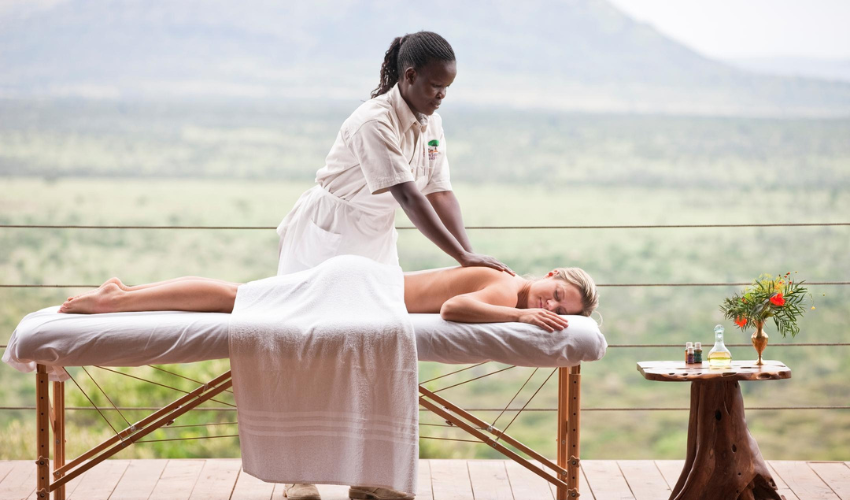
Myth 10: Africa is Not for Everyone
Reality: Africa welcomes travelers of all ages, backgrounds, abilities, and a well-planned safari can be tailored to diverse needs.
Safaris cater to all ages, including families with young children, honeymooners, and solo travelers. Many lodges feature kids’ clubs, young ranger programs, and specially designed activities, making the experience engaging for all generations. From conservation initiatives to walking safaris, there’s something for everyone.
While some countries have less welcoming policies, others—such as South Africa, Botswana, and Rwanda—are known for their friendliness toward LGBTQ+ travelers. Selecting the right destinations and accommodations with well-trained staff ensures a welcoming and comfortable experience for all.
Similarly, safaris are increasingly accessible for travelers with disabilities. Many luxury lodges offer wheelchair-friendly suites, adapted safari vehicles, and guides trained in accommodating mobility challenges. Whether it's a private game drive with extra assistance or a lodge with step-free access, working with a knowledgeable safari specialist ensures every traveler can experience Africa’s magic in a way that suits their needs.
Are you ready for your African adventure?
Africa is a land of unparalleled beauty, adventure, and luxury. A safari is one of the most transformative travel experiences in the world, and with the right planning, it can be enjoyed by anyone, at any time. Ready for your epic African adventure? Reach out to us and let's start the conversation.
The Best Country for African Safari
When it comes to the best country for an African safari, the answer depends on what you’re hoping to experience. Whether you're seeking a classic safari adventure, a blend of city exploration and wildlife encounters, a unique desert safari, a gorilla trek, or an off-the-beaten-path wilderness, Africa offers countless options. Each destination has its own unique charm and appeal. The most popular safari destinations—South Africa, Kenya, and Tanzania—are ideal for first-time safari-goers, but every African country offers incredible, one-of-a-kind adventures. Here’s a guide to some of the most coveted safari destinations where luxury, adventure, and relaxation converge.
Kenya: The Classic Safari Destination
Highlights: Maasai Mara, Amboseli National Park, The Great Migration, Maasai and Samburu cultures.
Best for: Families, first-time safari-goers, adventure lovers.
Expect: Spectacular landscapes, diverse and abundant wildlife, thrilling game drives, cultural encounters, and luxurious lodges in secluded locations.
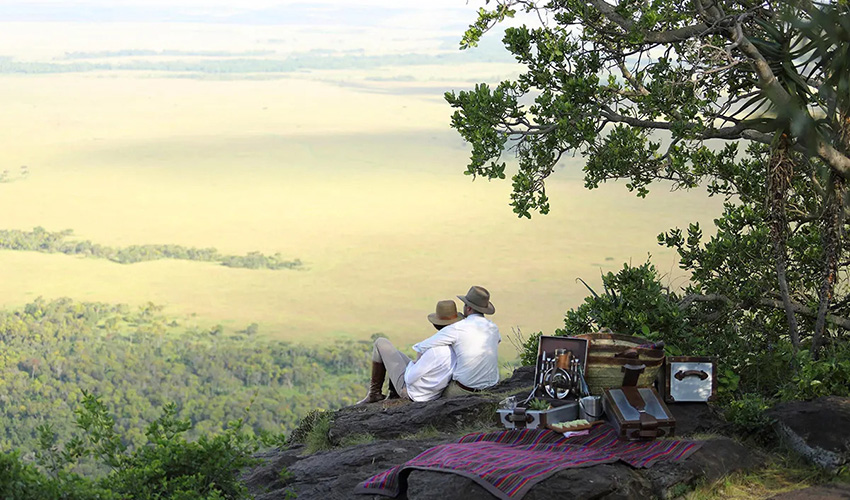
Kenya is the quintessential safari destination, offering a blend of incredible wildlife and rich cultural experiences. The Masai Mara is world-famous for its vast plains and the annual Great Migration of wildebeest, zebras, and other game. Amboseli National Park provides spectacular views of Mount Kilimanjaro and is home to some of the largest elephant herds in Africa. For an exclusive experience, Laikipia and Samburu offer private conservancies where wildlife, including unique northern species, roams freely. Guests can enjoy intimate game drives away from the crowds and take part in conservation activities.
Tanzania: A Safari Wonderland
Highlights: Serengeti and the Great Migration, Ngorongoro Crater, Tarangire, Zanzibar.
Best for: Wildlife enthusiasts, photographers, nature lovers.
Expect: Wide-open landscapes, abundant wildlife in renowned national parks and reserves, thrilling predator-prey interactions, white-sand beaches of Zanzibar.
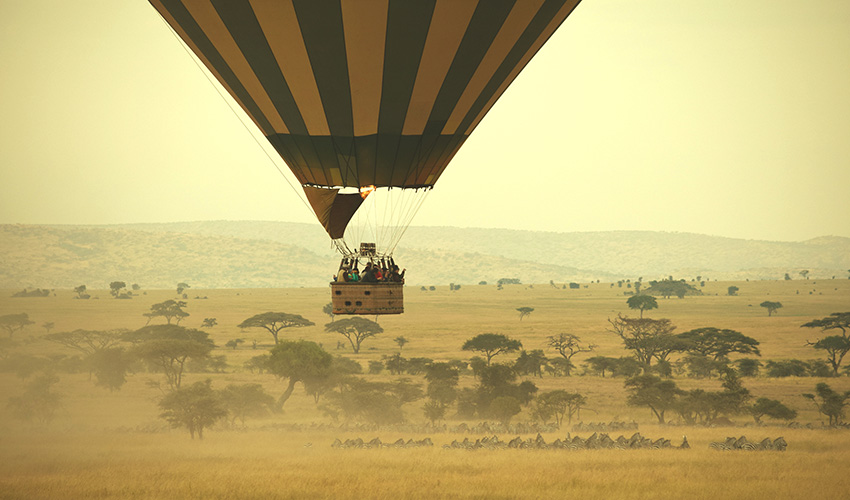
Tanzania offers some of the world’s best safari experiences, from the endless plains of the Serengeti to the unique landscape of the Ngorongoro Crater. The Serengeti is renowned for its dramatic migrations and its incredible variety of wildlife, including the Big Five. Ngorongoro Crater, a UNESCO World Heritage site, is one of the world’s most unique wildlife hotspots, offering easy access to large herds of animals. Tarangire National Park is another highlight, famous for its massive elephant herds and baobab trees.
Rwanda: The Primate Capital of Africa
Highlights: Volcanoes National Park and gorilla trekking.
Best for: Primate enthusiasts, adventure lovers, bucket-list experiences.
Expect: Primate trekking, lush rainforests, luxury lodges, and an emphasis on conservation and sustainable tourism.
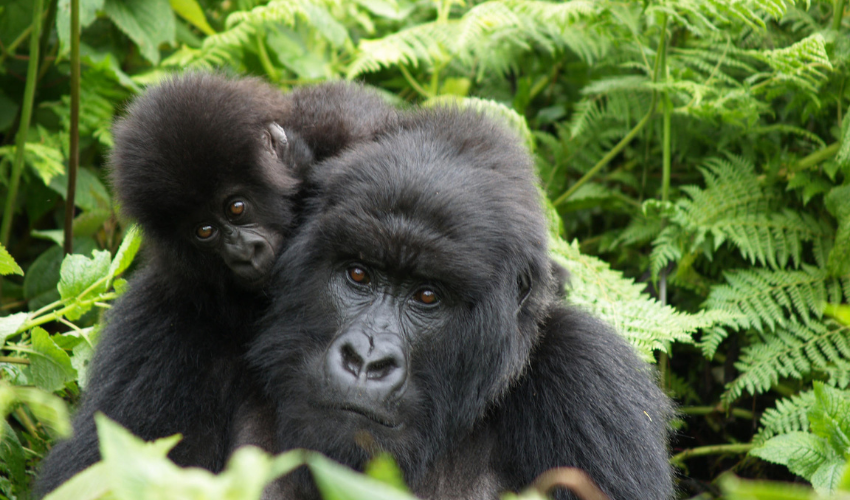
Rwanda’s lush rainforests and rare primates make it a must-visit for those seeking something beyond the classic safari. Volcanoes National Park offers the opportunity to trek to meet the endangered mountain gorillas in their natural habitat—one of the most profound wildlife experiences on Earth. Akagera National Park offers a classic safari experience with the Big Five and a variety of landscapes, from savannah to wetlands. Nyungwe Forest National Park is a sanctuary for chimpanzees and home to Africa's largest remaining montane forest. In Rwanda, you can stay in luxurious lodges and eco-friendly retreats that complement the country’s commitment to conservation.
South Africa: A Perfect Balance of City and Safari
Highlights: Kruger National Park, Sabi Sands Game Reserve, Cape Town, Winelands, the Big Five.
Best for: Those seeking a mix of wildlife and city exploration, families, first-time safari-goers.
Expect: Diverse experiences, culture, history, wildlife encounters, including the Big 5, luxury lodges in private reserves.
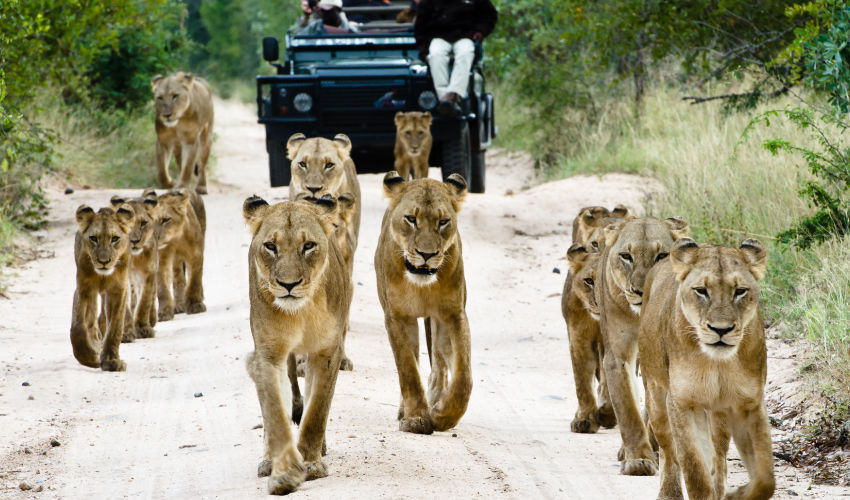
South Africa offers the perfect blend of city life and wildlife adventures, making it an ideal destination for those seeking both cultural immersion and a thrilling safari. Cape Town presents a cosmopolitan experience with its breathtaking beaches, iconic Table Mountain, and rich cultural attractions. The nearby Winelands region offers a taste of South Africa’s world-renowned wines. Kruger National Park, one of the world’s most famous safari destinations, is known for exceptional wildlife viewing, particularly the Big Five. Bordering it, private game reserves like Sabi Sands provide an exclusive safari experience, offering intimate game drives and stays at world-class lodges. Malaria-free safaris in Shamwari are ideal for families.
Botswana: An Exclusive Wilderness Retreat
Highlights: Okavango Delta, Chobe National Park, Makgadikgadi Pans
Best for: Luxury travelers, honeymooners, photography and bird enthusiasts, those seeking exclusivity
Expect: Seclusion, privacy, and a focus on conservation with luxury accommodations and personalized game experiences in one of Africa’s most pristine wildernesses.
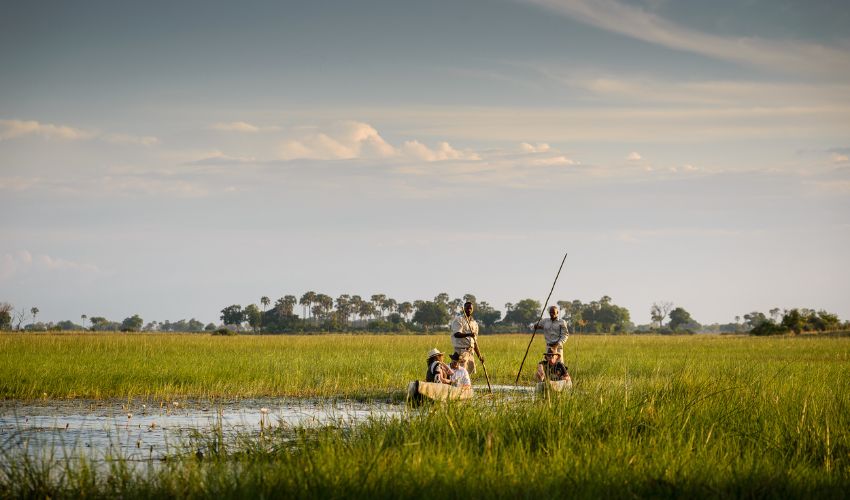
Botswana is the epitome of luxury and exclusivity, particularly in the Okavango Delta, one of the world’s most unique ecosystems. This UNESCO World Heritage site is an inland delta, where water channels, lush vegetation, and wildlife-rich islands offer a one-of-a-kind safari experience. Luxury tented camps and exclusive lodges offer a serene, intimate atmosphere, where guests can enjoy boat safaris, game drives, and mokoro (canoe) rides. Chobe National Park is known for its large elephant populations, while the Makgadikgadi Pans offers surreal landscapes and a sense of remote adventure.
Namibia: A Desert Adventure Like No Other
Highlights: Sossusvlei, Etosha National Park, Skeleton Coast, Damaraland, Kunene region.
Best for: Photographers, adventurers, those seeking solitude and unique experiences.
Expect: Dramatic desert landscapes, unique desert-adapted wildlife, and a sense of quiet isolation in exclusive, tranquil accommodations.
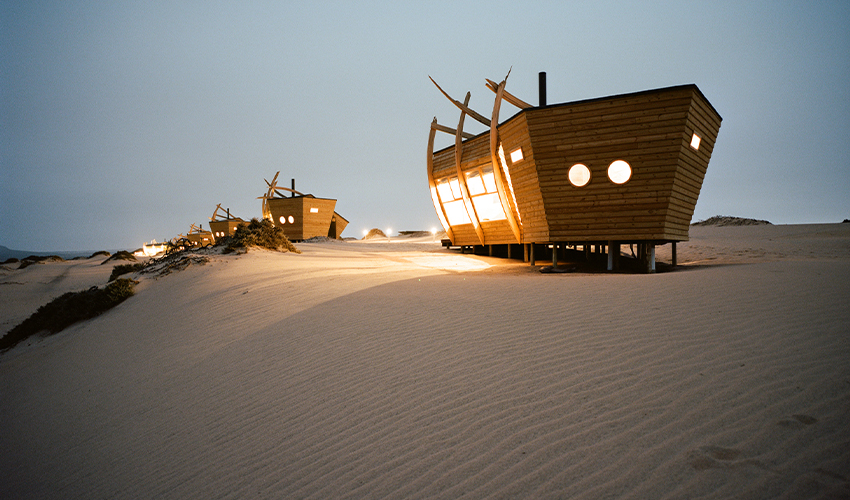
Namibia’s landscapes are as unique as they come. Sossusvlei is a striking desert destination with towering red dunes that are some of the highest in the world. Etosha National Park is a great place to witness the desert’s wildlife, where animals gather at waterholes against the stark, salt-crusted landscape. The Skeleton Coast offers an eerie yet beautiful coastline, making it perfect for those looking to explore Africa’s wilder side. Damaraland is known for its rugged landscapes, ancient petroglyphs, and desert-adapted elephants. It's a remote region perfect for adventure seekers. Kunene region (formerly known as Kaokoland) offers a unique cultural experience with the Himba people and stunning, arid landscapes.
Zimbabwe: Off-the-Beaten-Path Safari and Victoria Falls
Highlights: Hwange National Park, Mana Pools National Park, Victoria Falls.
Best for: Adventurers, nature lovers, those seeking a more remote safari experience, and repeat safari-goers
Expect: Quiet, remote experiences, walking safaris, rare wildlife sightings, and the breathtaking Victoria Falls.
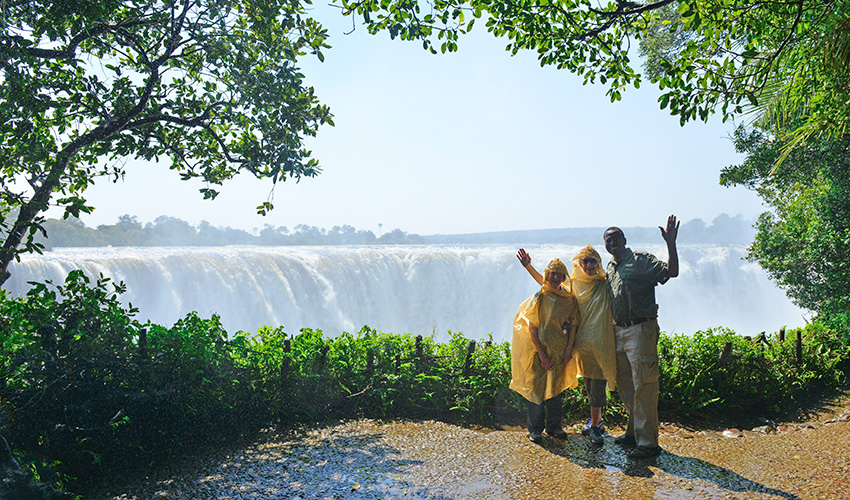
Zimbabwe is a treasure trove of off-the-beaten-path safari destinations, offering pristine landscapes and intimate wildlife encounters. The Victoria Falls, one of the Seven Natural Wonders of the World, is a must-see. Visitors can experience its awe-inspiring power from both the Zimbabwean and Zambian sides, with activities ranging from boat trips along the Zambezi River to thrilling helicopter flights over the falls.
For those looking to experience the heart of Africa’s wilderness, Mana Pools National Park is a UNESCO World Heritage site offering an unparalleled sense of solitude. Known for its exceptional walking safaris, canoeing safaris, and incredible wildlife sightings, Mana Pools is perfect for those wanting to immerse themselves in nature. Hwange National Park, Zimbabwe’s largest park, is home to vast herds of elephants and diverse wildlife, making it an ideal destination for game drives and wildlife photography.
Zambia: A Hidden Gem for Wildlife and Victoria Falls
Highlights: South Luangwa National Park, Lower Zambezi National Park, Victoria Falls.
Best for: Wildlife enthusiasts, those seeking an authentic safari experience, adventure seekers, seasoned travelers, and repeat safari-goers.
Expect: Authentic experiences in pristine wilderness, stunning landscapes, walking and water safaris, incredible wildlife, and the majestic Victoria Falls.
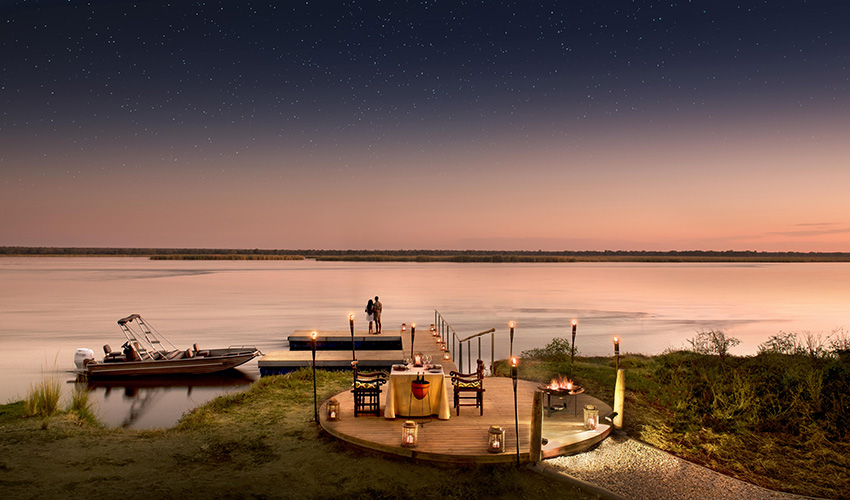
Zambia is known for its immersive and authentic safari experiences, especially in its less-traveled parks. South Luangwa National Park is a renowned hotspot for walking safaris, where guests can venture into the wild with expert guides and learn about the ecosystem on foot. The park’s remarkable biodiversity, from lions to leopards and elephants, makes it a haven for wildlife enthusiasts and photographers. Lower Zambezi National Park offers a peaceful retreat with boat safaris along the Zambezi River, where guests can observe wildlife from a unique perspective. The Victoria Falls, located on the border with Zimbabwe, offer another unforgettable experience, including adventurous activities like rafting, canoeing, or ziplining.
Madagascar: The Eighth Continent
Highlights: lemurs, Andasibe-Mantadia National Park, Avenue of the Baobabs, Tsingy de Bemaraha, Isalo National Park, Spiny Forest.
Best for: Nature lovers, wildlife enthusiasts, photographers, and unique adventures.
Expect: Remote wilderness, unique wildlife such as lemurs and chameleons, extraordinary and diverse landscapes.
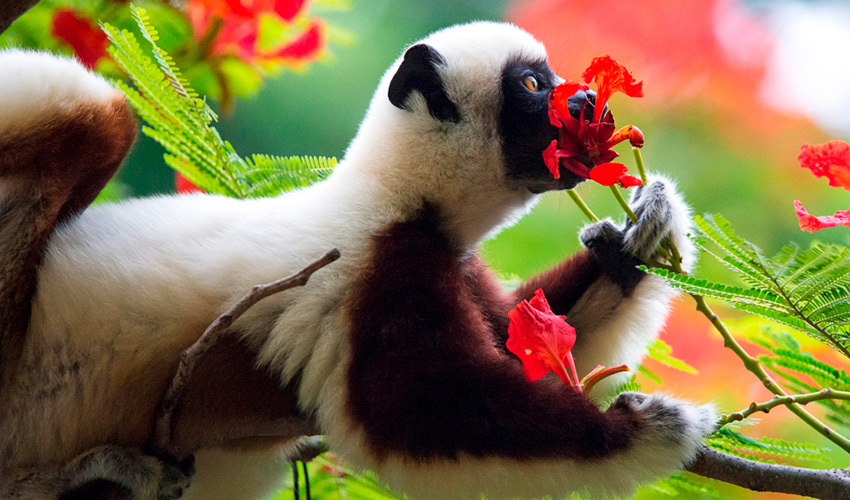
Madagascar offers a truly unique safari experience, with over 90% of its wildlife found nowhere else on Earth. Encounter playful lemurs, chameleons, and towering baobabs, along with dramatic landscapes and exclusive wildlife experiences. Andasibe-Mantadia National Park is a top spot for seeing the indri lemur. The Avenue of the Baobabs creates a surreal landscape, while Tsingy de Bemaraha, a UNESCO World Heritage Site, offers unique limestone formations. Isalo National Park features striking sandstone formations and natural pools. For a more secluded adventure, Mandrare River Reserve invites exploration of the spiny forest and rare wildlife. Anjajavy Forest combines pristine beaches with rare wildlife and private lodges.
For those seeking experiences beyond the safari, Egypt and Morocco offer unique adventures that blend ancient history, rich culture, and breathtaking landscapes. In Egypt, the awe-inspiring pyramids of Giza, the temples of Luxor, and a peaceful cruise down the Nile River bring the legacy of an ancient civilization to life. Morocco, a land of contrasts, fuses ancient traditions with stunning scenery. From the bustling souks of Marrakech to the vast Sahara Desert and the towering Atlas Mountains, each region offers its own captivating charm.
No matter which destination you choose, a safari in Africa is more than a trip—it’s a transformative journey into some of the world’s most awe-inspiring landscapes, where unforgettable wildlife encounters and rich cultural experiences await at every turn.
